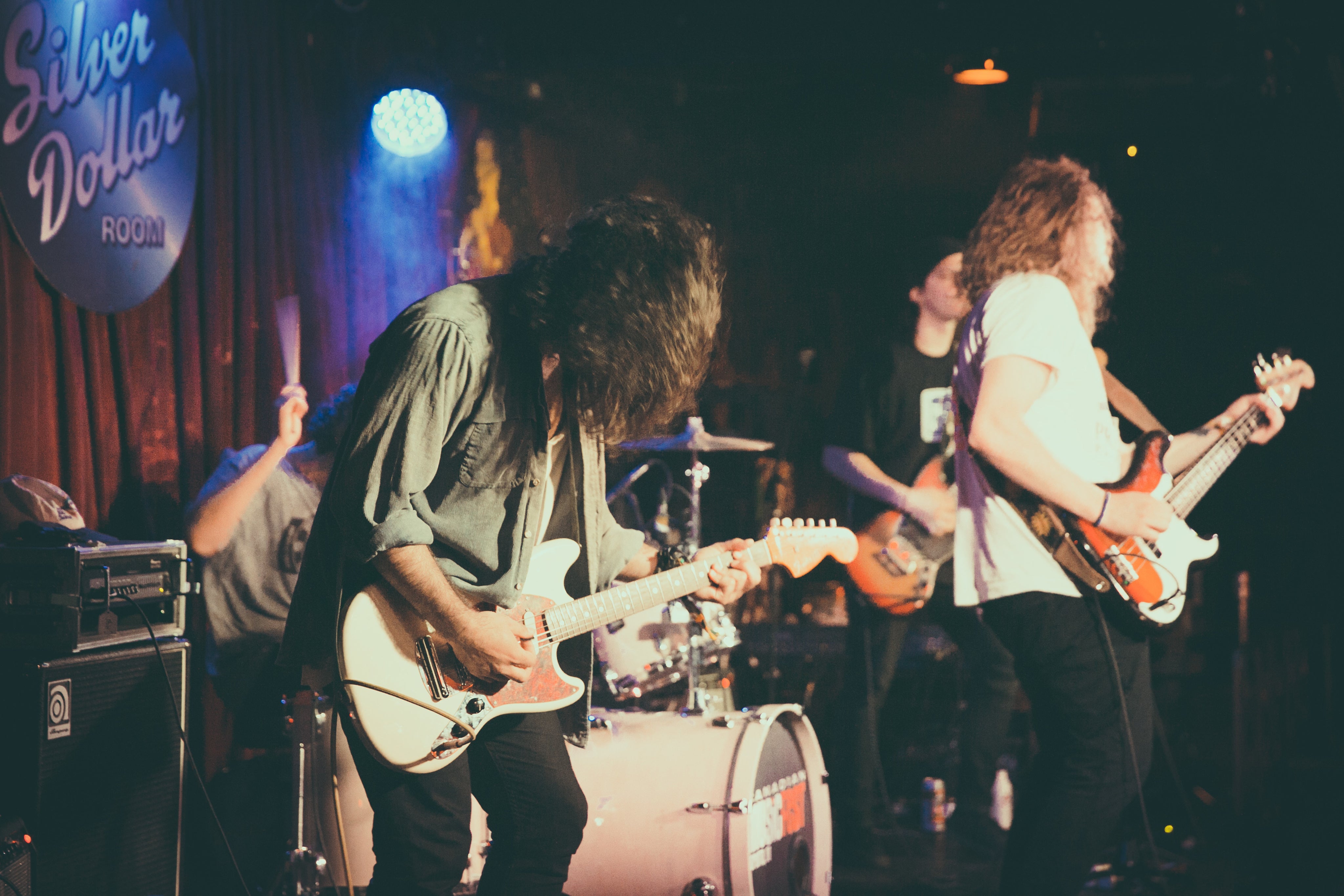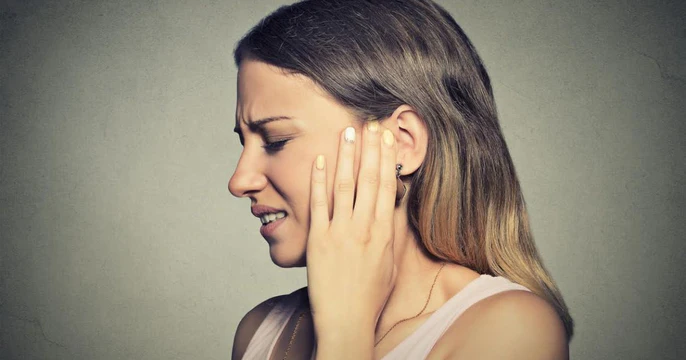Key takeaways
- Being able to protect your ears as a musician is vital. Noise levels at gigs and concerts can have a harmful effect on your ability to hear and can have far-reaching consequences.
- The average person is born with around 16,000 hair cells within their ears. You can lose between 30-50% of these hairs before you start to notice problems with your hearing.
- As a musician, it’s important to get your hearing checked regularly to make sure you’re not damaging your ears.
- When in loud environments, it’s important to take regular breaks to allow your ears to rest and recuperate.
- When it comes to protecting yourself in loud environments, earplugs are your best form of defense. Loop Experience earplugs can help you to reduce noise by up to 18 decibels, allowing you to fully immerse yourself into your music without having to sacrifice the health of your ears.
- Remember that hearing damage is permanent. So make sure to look after your ears to the best of your ability.
Being a musician with hearing loss isn’t easy.
The ability to properly hear is one of the most important aspects of being a musician.
Whether you’re playing in a professional band, jamming away in your parents garage or just picking up your first guitar, you need to be able to hear.
And your hearing is vital to not only being able to create your art, but to feeling connected to it on a deeply creative and personal level.
And yet, among musicians, hearing loss is incredibly common.
So how can you prevent hearing loss as a musician?
Let’s take a look.

How can being a musician damage your hearing?
It’s true that if you’re simply playing your acoustic guitar at home or gently tapping away at your piano, there isn’t much danger of damaging your hearing.
But when you amp it up a little and start playing in an orchestra or a live band, or even just plug your guitar into a speaker, the risk increases considerably.
But why?
Well, it all comes down to the physiological makeup of your ear.
How your ears work
Your ears are a complex mix of nerves, tiny bones and muscles.
Your hearing works via small, delicate hairs in your inner ear that vibrate in response to various sound waves. This vibration causes an electrical signal to travel up your auditory nerve to your brain, which then interprets the message as sound, allowing us to hear.
It’s all pretty fascinating (and complicated) stuff.
And because this system is so delicate and complex, there is quite a lot of room for things to go wrong.
The danger of loud sound
Let’s say that you are regularly plugging in and playing with your rock band.
This consistent exposure to loud sound can actually damage the cells and membranes in your cochlea. This occurs when those tiny hairs we mentioned earlier are overworked, which causes them to break and die.
The average person is born with around 16,000 hair cells within their ears. It sounds like a lot, but those 16,000 cells have to last your entire life as once they die – they don’t regrow.
That means that the more cells you damage or destroy, the less capable your ears will be of signaling sound to your brain – therefore affecting your ability to hear. And any damage to your inner ear or your ear's neural system tends to be permanent.
When will your hearing become affected?
You can lose between 30-50% of your original 16,000 hair cells before you start to notice any real changes to your ability to hear. But the problem here is that by the time you actually notice that your hearing is suffering, it’ll already be too late and the damage will be permanent.
You may notice that after a particularly loud gig or rehearsal your hearing is affected and sounds seem dampened, or perhaps there’s a constant ringing in your ear. But after an hour or two, you notice that your hearing has returned to normal.
But isn’t hearing loss supposed to be permanent?
What’s most likely happened in these cases is your hairs will have temporarily bent due to the high volume. But after a recovery period, the hairs have become straight again and your hearing has gone back to normal.
But as with anything, when they are repeatedly put under stress, your hairs can only be bent so much before they either break or become weak and frail. And with this damage comes varying degrees of hearing loss.
Is it just hair cells under threat?
Noise isn’t just a danger to your hair cells – it can also damage your auditory nerve. And as your auditory nerve is responsible for sending signals to your brain, any damage can have far-reaching effects.
When damaged, your nerves will become less efficient and sensitive. Common symptoms of an impaired auditory nerve include difficulty in understanding speech in noisy places, sounds fading in and out, and sounds seeming overly loud in one ear – amongst others.
How to prevent hearing loss as a musician
As a musician, hearing loss can seriously affect your ability to play your instrument effectively. So it’s essential that you think about how to protect your hearing as a musician so you can continue doing what you love, without the potential consequences.
It’s also important to consider what type of music you play, as some solutions will be more suitable for orchestras, others for rock bands, and others might work well for big bands.
1. Wear earplugs
When it comes to protecting yourself in loud environments, earplugs are your best form of defense.
When it comes to hearing protection for music, most earplugs don’t eliminate noise entirely – nor would you want them to.
Loop earplugs simply reduce the decibel levels that your eardrums are exposed to – making them the perfect option for musicians who want to protect their eardrums while also still being able to hear the band around them, as well as the subtle intonations, nuances, and things that other earplugs force you to miss.
With Loop Experience earplugs, you’ll still be able to pick up on these fine details, allowing you to fully take your world of sound into your own hands.
Our Experience earplugs can help you to reduce noise by up to 18 decibels, allowing you to fully immerse yourself into your music without having to sacrifice the health of your ears. They have a built-in patented acoustic channel and mesh that filters sound equally across all frequencies. That means you can fully experience your music whilst keeping the decibels to a safe level.
Loop Earplugs
Loop Experience 2
2. Get your hearing checked regularly
Sometimes loud sounds are unavoidable. So if you’re in a situation where you are regularly being exposed to excess decibel levels, then you should get your hearing regularly checked by a medical professional.
Hearing loss can often be hard to detect by yourself, and it can happen gradually as a result of continued exposure to loud noises. The gradual nature of hearing loss means it can really creep up on you.
Getting your hearing regularly tested can help you catch the signs of hearing loss early, and allow you to take the necessary steps to protect your hearing.
3. Don’t be afraid to talk about hearing loss
As a musician you depend on your hearing. Admitting it’s not what it used to be is hard. But it’s nothing to be ashamed of – and by talking about it openly, you’ll help to create awareness of the dangers of hearing loss in musicians, which can help others.
It’s a common misconception that tinnitus and other forms of hearing damage happen after a single incident of exposure to loud noises. But constant exposure can be just as damaging. That information needs to get out there among musicians so everyone can better protect themselves.
By talking about the potential dangers, and about your only experiences with hearing damage, you’re helping your whole community.
4. Wear earmuffs
Wearing earmuffs as a form of protection can go a long way toward protecting your hearing. They work by blocking out loud noises and dampening the intensity of sound as it reaches your ears.
This extra layer of protection helps you to protect the delicate structures of your ears and can reduce the risk of hearing loss.
Many musicians will wear earmuffs on stage. But as they do block out a lot of noise, you’ll regularly see people with one earmuff on and one earmuff off. While this means they can still hear the timing of the band around them, they are also only protecting one ear – making this an ineffective solution.
5. Spread out loud rehearsals
The National Opera of Amsterdam spreads out its loud rehearsals as far as possible to do some damage control. Sometimes they hire extra people to rotate among the musicians so everyone is at a lesser risk of hearing damage.
Orchestras often use a color-coded program to ensure that two loud pieces aren’t played together. Each piece is assigned a color, with green representing quieter songs and red for louder pieces. When a red piece is performed, it should be followed by a green one, and so on.
Even if you don’t play in an orchestra, you could still apply this to your own music rehearsals and performances, so that you never have to endure loud music for too long.
6. Keep the volume low
Similarly, when you’re playing your instrument, unless it’s in front of a large, noisy crowd, it’s often unnecessary to have the volume at a very high level.
So while you’re practicing, rehearsing or playing for a smaller group of people, try keeping the volume at a lower level. This will allow you to play your instrument safely while still giving people the opportunity to experience your music.
7. Take regular breaks
When it comes to loud environments, regular breaks are your friend.
Being exposed to eardrum-bursting sound levels for lengthy periods of time is incredibly detrimental to your health. And while you may experience nothing more than some ringing in your ears in the short term, repeated prolonged exposure can lead to irreparable damage.
So if you’re in a situation where you simply can’t avoid high-volume environments, make sure you take frequent breaks to allow your ears to rest and recuperate. Even if it means making your band take five a few times per rehearsal.
8. Install noise barriers
This is a common solution for orchestras. Often they’re hidden in plain sight, and could easily be mistaken for a music stand. But with bigger productions, you can sometimes see that the stage is covered in barriers to reduce the noise.
They’re made of wood with Styrofoam panels on the inside, and are draped in a black cloth or curtain. They work by dampening the sound, and are usually used to protect musicians seated in front of the loudest instruments (looking at you, brass section!).
9. Experiment with the band set-up
If you play in a band, it’s important to think about where each musician is located on the stage. This is most applicable to orchestras and big bands, but it’s also worth thinking about for rock and pop bands.
Brass and percussion instruments are the loudest – so it makes a difference whether someone is sitting one meter or three meters away from them. The closer they are to a loud instrument, the more likely they are to experience hearing damage. Can you sit them a little further away and create more space?
10. Don’t stand in front of speakers
This one is simple, but it can be easy to forget when you’re lost in your guitar riff and the crowd is going wild.
Make it a habit not to stand in front of the speakers, whether you’re playing live or practicing at home. The closer you are to the source of a loud noise, the more likely you are to be affected by it. So, take a step away from the speakers and reduce your risk!

Hearing protection is music to your ears
Hearing protection for musicians is absolutely essential.
And don’t just take it from us, here’s what famous rocker Ozzy Osbourne said about his struggles with hearing loss:
“I suffer from permanent tinnitus . . . which means I've got this constant ringing in my ears, which has also made me somewhat deaf (or ‘conveniently deaf,’ as Sharon calls it). It's like this Whee! noise in my head all the time. Should have worn earplugs, I guess.”
And here’s what three-time Rock & Roll Hall of Famer Eric Clapton has to say:
“I started using Fender Deluxe Reverb amps and 50-watt Marshalls around ’97, after I started having some problems with tinnitus. It was my own doing — being irresponsible and thinking I was invincible. . . . Take care and wear plugs.”
Loop earplugs are the perfect music ear protectors. They allow you to experience your music at your own level – all while giving you the protection you need to keep your ears fit, healthy and fully functional.
To find out more about how Loop can help you keep your ears safe while you make sweet sweet music, make sure to come and check out our range of noise-reducing earplugs for musicians.

How to Stop Ringing Ears After a Concert
If you’ve landed on this article, there’s a pretty good chance you’re hearing a ringing in your ears while reading th...

How to prevent tinnitus and protect your ears
Prevention is the best cure, right? And when it comes to tinnitus, properly protecting your ears can go a long way to...

Which Loop Earplugs are right for me?
People wear Loop Earplugs for live music and noise sensitivity, parenting and sleep. Use this guide to determine whic...



















